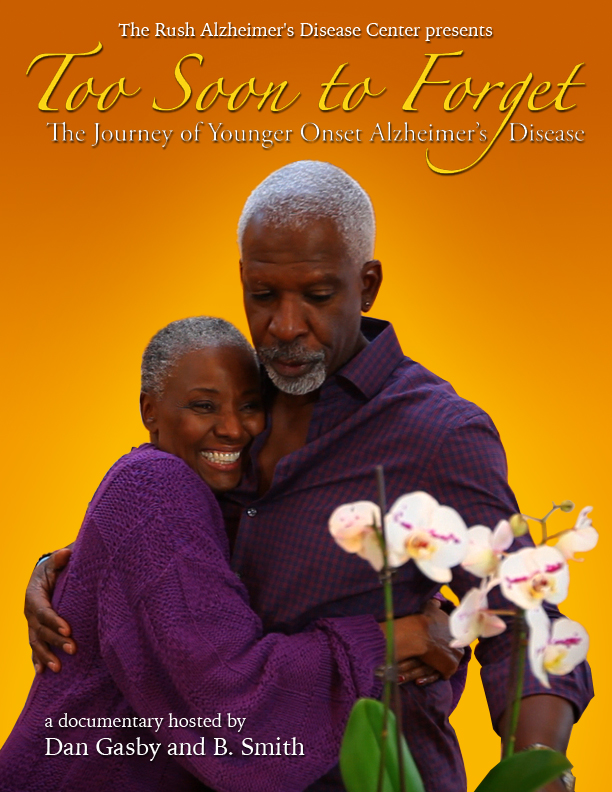At one of our Without Warning meetings, Bob, whose wife passed away from younger-onset Alzheimer’s disease several years ago, told me something interesting. He realized that during the 10 plus years he has been attending Without Warning meetings, he has learned how to share his story. While sharing your story might seem like a small task, I’ve grown to realize that it is a profound and healing skill.
Without Warning, a 15-year-old support program of the Rush Alzheimer’s Disease Center, is for families living with younger-onset Alzheimer’s disease. Younger-onset Alzheimer’s means the person is diagnosed by the age of 65 or younger. This is a young age to be experiencing Alzheimer’s disease. Group members might still be working, raising children, driving and have friends who aren’t experiencing such a life-changing disease. Alzheimer’s at any age can make someone feel isolated and different, but these feelings only intensify when someone is young.
‘Agony of an untold story’
The author and poet, Maya Angelo once said, “There is no greater agony than bearing an untold story inside you.” As a group facilitator, I have seen the agony of an untold story in both the person with Alzheimer’s and their family members, and there are numerous reasons their stories are not heard or told.
People don’t want to hear about Alzheimer’s whether from a lack of understanding or feeling uncomfortable or fear. Many disregard the story of the person with Alzheimer’s disease, thinking that because of their diagnosis they no longer have a story to share. People living with Alzheimer’s disease might not share their story because of change in ability to communicate, embarrassment or shame. For a variety of reasons, family members might also struggle to put into words what they are experiencing.
So much to share
To encourage this effort of sharing, Without Warning created the documentary called Too Soon to Forget: the Journey of Younger Onset Alzheimer’s Disease (now airing on PBS, in many local libraries, soon on streaming services and available as a DVD). Nine families shared their story in hopes of reaching others who are going through this experience and to educate the community on their role. Narrators Dan Gasby and his wife, celebrity chef B Smith, also share their story of life with younger onset Alzheimer’s disease. It takes a community to listen to and support those living with younger-onset Alzheimer’s disease and people living with younger-onset Alzheimer’s disease have much to share about what it means to be human and live with life’s struggles.
The Without Warning program has always been a leader in creating space for stories to be shared. Through meetings and the many conference panel presentations, group members learn to share their experiences, and in doing so, there can be an immense comfort. Mary, one of our group members, said on sharing: “When we choose to confide, when we choose to be vulnerable, when we open it up to others, something shifts, palpably. The progression of the disease doesn’t change, but the burden is shared and it’s better.”


